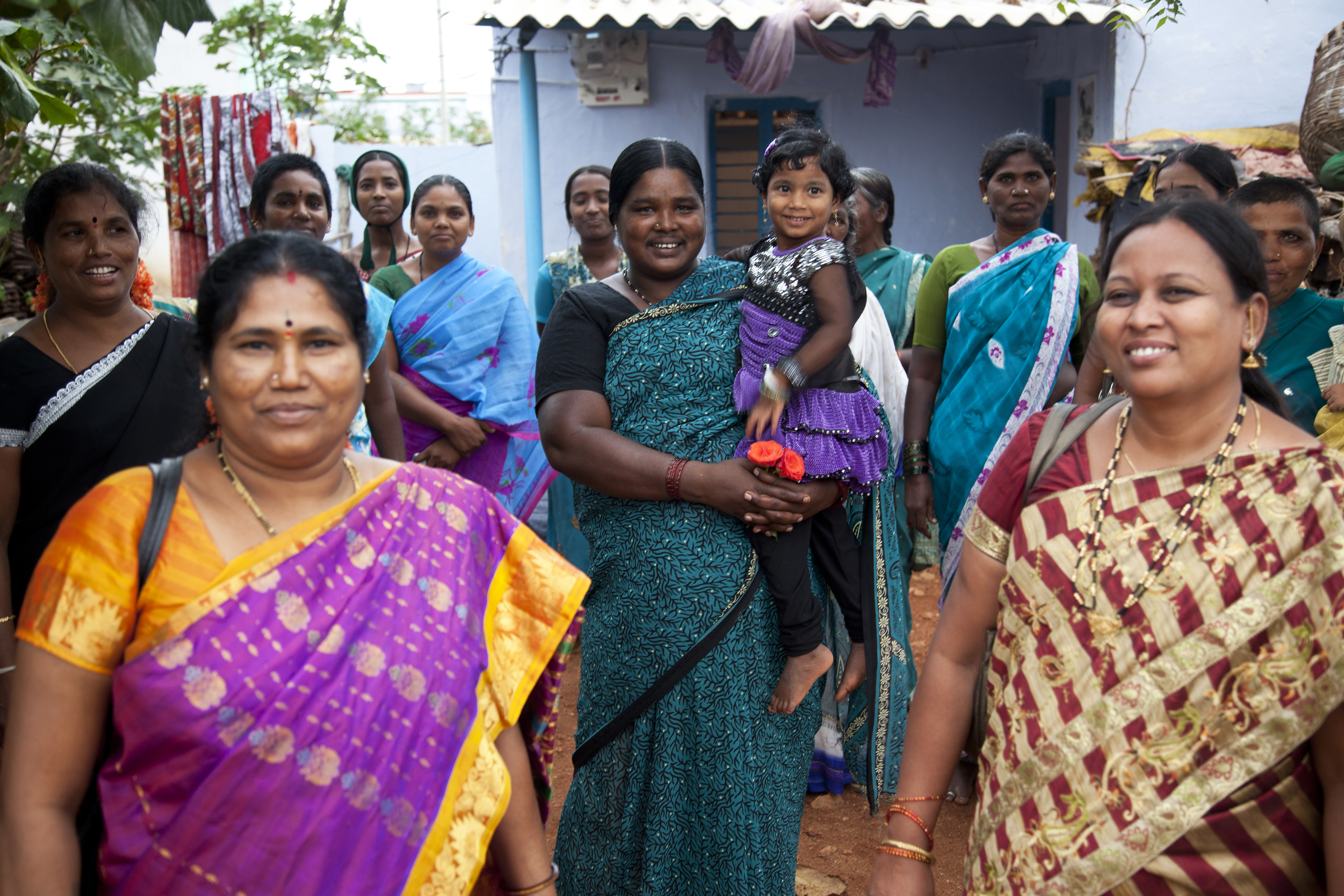Community Collectivisation to Sustain HIV Prevention: Findings from Avahan in Andhra Pradesh

Community collectivisation empowers key populations such as female sex workers, men who sex with men and transgenders to voice their concerns and more confidently exercise their right to access healthcare and social welfare schemes. Photo by Peter Caton for India HIV/AIDS Alliance
Community collectivisation can help develop a stronger sense of purpose and interconnectedness among key populations (KPs) such as female sex workers, men who sex with men and transgenders. Sometimes known as ‘community mobilisation’, community collectivisation enables these groups to utilise their experience of vulnerability to overcome barriers they face and realize reduced HIV vulnerabilty and greater self-reliance. Collective action by KPs also empowers them to voice their concerns and more confidently exercise their right to access healthcare and social welfare schemes.
With support from the Bill & Melinda Gates-funded Avahan programme, a recent study led by Niranjan Saggurti of Population Council in collaboration with India HIV/AIDS Alliance was designed to demonstrate if community collectivisation is associated with consistent condom use and STI treatment seeking behaviours among female sex workers (n= 3,557) and high-risk men who have sex with men/transgenders (n=2,399) in Andhra Pradesh. Recently published in the journal AIDS Care, the study generated significant positive findings.
Entitled ‘Community collectivization and its association with consistent condom use and STI treatment seeking behaviors among female sex workers and high-risk men who have sex with men/transgenders in Andhra Pradesh, India’, the study showed that high levels of collective action and participation in public events by both populations led to higher levels of consistent condom use, increased STI treatment seeking from government facilities, and improved ability to negotiate condom use.
The findings confirm the value of sustained community system strengthening to empower communities to meaningfully engage in national HIV prevention efforts and show the key role played by community collectivisation as an essential strategy to encourage consistent condom use and health seeking behaviours among KPs.
Read the complete study here.
___________________________
The author of this post, Dr. Parimi Prabhakar, is Director of Alliance India’s Regional Office in Hyderabad.
The Avahan India AIDS Initiative (2003-2014) is funded by the Bill & Melinda Gates Foundation. The programme aims to reduce HIV transmission and the prevalence of STIs in vulnerable high-risk populations, notably female sex workers, MSM, and transgenders, through prevention education and services such as condom promotion, STI management, behavior change communication, community mobilization, and advocacy. Avahan works in six states, and Alliance India is a state lead partner in Andhra Pradesh.
Other Recent Articles
- Yoga for Wellness: Supporting People Living with HIV & NCDs 25 June, 2025
- The Unsung Heroes of HIV Care: Outreach Workers under the Vihaan Programme 8 May, 2025
- Men’s Mental Health Matters in HIV Care 1 April, 2025
- Transforming Lives through Health Interventions: My Visit to Narmadapuram Prison 11 July, 2024
- HIV and Ageing: Understanding the Unique Needs of Older Adults 20 May, 2024
- Youth Voices: Life with HIV in Contemporary India 26 September, 2023
- Empowering Transgender Community to create an Equal World 20 July, 2023
- Combating Stigma and Discrimination Among People Living with HIV 7 July, 2023
- Understanding the Significance of HIV Testing: Impact on Individuals, Relationships, and Society 22 June, 2023
- Empowering Lives during Unrest l Our Commitment to Manipur 5 June, 2023
- Made by Nicdark - Copyright 2020
- donations@ong.com
- volunteers@ong.com
- contact@ong.com
India HIV/AIDS Alliance (Alliance India)
A not-for-profit Section 8 Company with Registration No: U85310DL1999NPL098570
Contact
-
6, Community Centre
Zamrudpur Kailash Colony Extension
New Delhi – 110048 - +91-11-4536-7700
Download
©2021 All Rights Reserved by Alliance India



